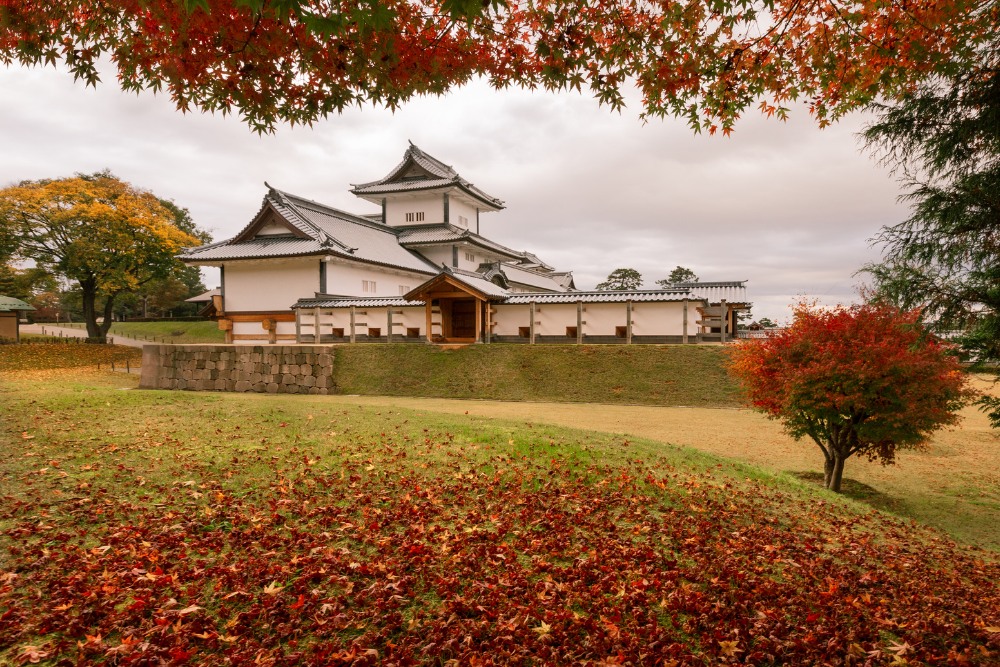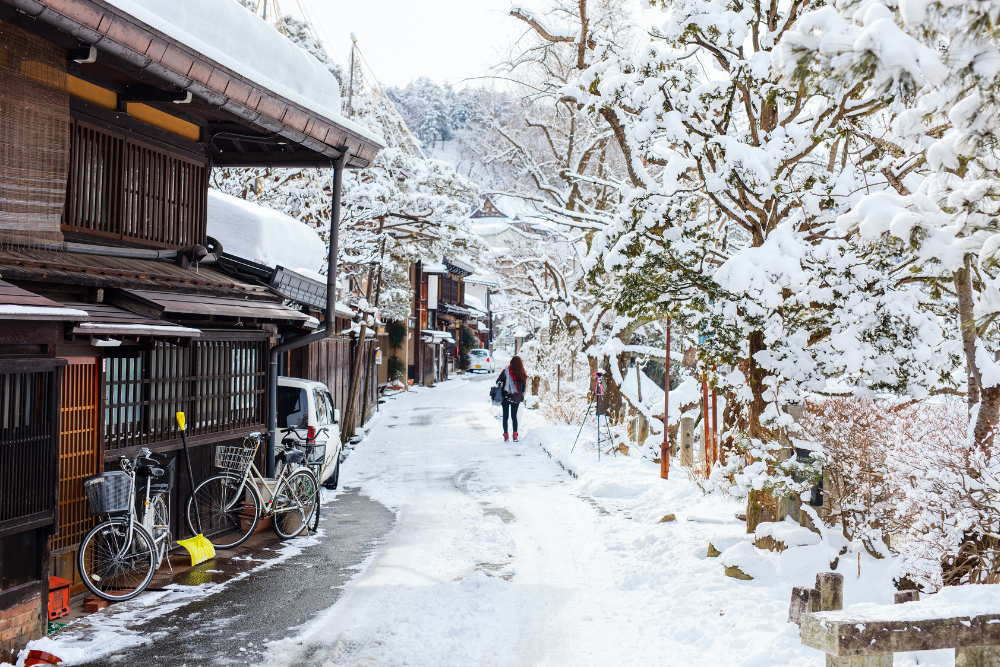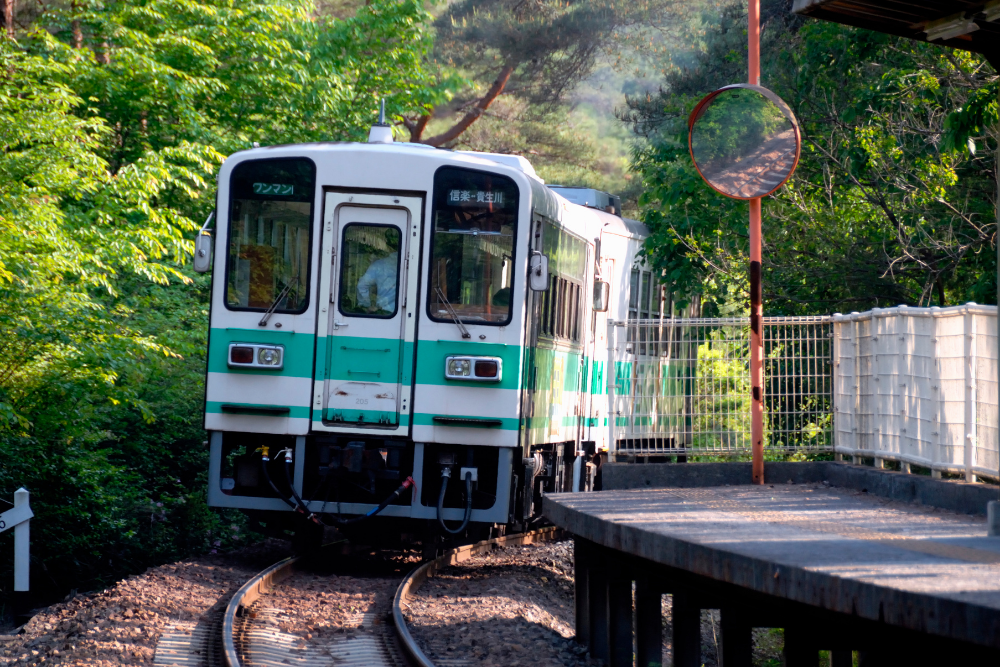Japan is renowned for its deep-rooted artisan culture, where centuries-old craftsmanship continues to thrive in local towns dedicated to traditional arts. From ceramics and textiles to lacquerware and paper-making, these artisan villages offer a glimpse into Japan’s rich artistic heritage. Visiting these towns provides an opportunity to not only admire exquisite handmade goods but also witness artisans at work and even try crafting your own masterpiece.
If you’re a lover of traditional crafts, here are some of the best artisan towns in Japan where craftsmanship is a way of life.
1. Kanazawa – The City of Gold Leaf and Kutani Ware
Located on the western coast of Japan, Kanazawa is a city deeply connected to traditional arts. It is particularly famous for:
Gold Leaf (Kinpaku)
Kanazawa produces over 99% of Japan’s gold leaf, which is used to decorate everything from Buddhist temples to lacquerware and even food. You can visit workshops like Hakuza or Sakuda Gold & Silver Leaf to see artisans delicately applying gold leaf to various objects. Many shops also offer hands-on experiences where you can decorate chopsticks, plates, or postcards with gold leaf.
Kutani Ware (Kutani-yaki)
A distinctive style of ceramic ware, Kutani-yaki is known for its bold colors and intricate patterns. The Kutani-yaki Kiln Museum provides insight into the history and techniques of this craft, and visitors can try painting their own ceramic pieces.
Beyond crafts, Kanazawa is also home to Kenrokuen Garden, one of Japan’s most beautiful landscapes, and the well-preserved Higashi Chaya District, where you can explore historic teahouses.
2. Takayama – The Heart of Traditional Woodworking
Nestled in the mountains of Gifu Prefecture, Takayama is famous for its exceptional woodworking craftsmanship. The town’s artisans have been creating fine Hida furniture and wood carvings for centuries.
Hida Furniture
Using local hinoki (cypress) and other high-quality woods, Hida artisans craft furniture that blends traditional joinery techniques with modern aesthetics. You can visit Hida Sangyo, one of Japan’s oldest furniture makers, to see how these masterpieces are created.
Miyagawa Morning Market
A great place to find handcrafted wooden goods, lacquerware, and textiles, this market offers a chance to meet artisans directly.
Takayama’s beautifully preserved old town, with its Edo-period merchant houses and sake breweries, adds to the town’s charm.
3. Mashiko – A Potter’s Paradise
Located in Tochigi Prefecture, Mashiko is a well-known pottery town with a rich history in ceramics. It gained fame through the work of Shoji Hamada, a leading figure in Japan’s folk craft movement.
Mashiko-yaki Ceramics
Mashiko pottery is characterized by its earthy tones and simple, rustic beauty. Many workshops allow visitors to try their hand at the potter’s wheel, making it a great destination for those interested in ceramics.
Mashiko Pottery Fair
Held twice a year (in spring and autumn), this event brings together hundreds of potters, showcasing a vast selection of handmade ceramics. It’s an excellent opportunity to purchase unique, locally crafted pieces.
4. Echizen – The Home of Japanese Paper
Fukui Prefecture’s Echizen is Japan’s oldest and most respected center for washi (Japanese paper) production. The town has been making handmade paper for over 1,500 years and continues to supply washi for calligraphy, stationery, and even currency.
Echizen Washi Village
A must-visit for paper enthusiasts, this facility features museums, workshops, and galleries dedicated to washi-making. Visitors can participate in papermaking sessions and create their own washi postcards or decorative sheets.
The town’s serene atmosphere and connection to Japan’s artistic traditions make it a fascinating stop for craft lovers.
5. Bizen – A Center for Samurai Ceramics
Located in Okayama Prefecture, Bizen is famous for Bizen-yaki, one of Japan’s oldest styles of pottery. This unglazed stoneware is fired at high temperatures, giving it a distinctive, earthy appearance.
Bizen-yaki Pottery
Unlike other ceramics, Bizen-yaki is fired without glaze, relying on natural ash and kiln conditions to create unique patterns. The Bizen Pottery Museum and various kilns in the town offer insights into the craft’s history and techniques.
Many workshops provide hands-on experiences where visitors can create their own pottery pieces, making Bizen a great place for ceramic enthusiasts.
6. Shigaraki – The Land of Tanuki Statues
Located in Shiga Prefecture, Shigaraki is another famous pottery town, best known for its tanuki (raccoon dog) statues, which are believed to bring good fortune.
Shigaraki-yaki Ceramics
One of Japan’s Six Ancient Kilns, Shigaraki specializes in rustic, fire-resistant pottery. Visitors can explore workshops and even try making their own ceramic creations.
Miho Museum
Just outside Shigaraki, this stunning museum, designed by I.M. Pei, showcases traditional and contemporary art, making it a great cultural stop.
7. Yame – The Tea and Lantern Town
Located in Fukuoka Prefecture, Yame is known for its high-quality green tea and handmade paper lanterns.
Yame Tea
One of Japan’s finest green teas, Yame tea is celebrated for its deep umami flavor. Many tea farms offer tastings and farm tours, allowing visitors to experience tea-making firsthand.
Handmade Paper Lanterns
Yame’s traditional chochin (paper lanterns) are crafted using delicate washi paper and bamboo frames. Visitors can watch artisans shape and paint these lanterns, which are often used in festivals and temples.
8. Tsubame-Sanjo – Japan’s Metalworking Hub
Located in Niigata Prefecture, Tsubame-Sanjo is a world-renowned center for metal craftsmanship. It has been producing exceptional kitchen knives, cutlery, and copperware for centuries.
Japanese Knives and Metalware
The region is famous for its high-quality kitchen knives, known for their precision and durability. Workshops such as Tadafusa and Tojiro allow visitors to observe the knife-making process and even sharpen their own blades.
Tsubame Industrial Materials Museum
This museum showcases the evolution of metalworking techniques in the region, from samurai swords to modern kitchen tools.
Conclusion
Japan’s artisan towns offer a unique glimpse into the country’s deep artistic traditions. Whether you’re interested in ceramics, woodworking, metalcraft, or papermaking, these destinations provide opportunities to not only witness master craftsmanship but also engage in hands-on experiences.
Visiting these towns is more than just a cultural excursion—it’s an invitation to appreciate the dedication, skill, and artistry that have been passed down through generations. If you’re passionate about handmade crafts, these artisan villages should be on your travel list when exploring Japan.












